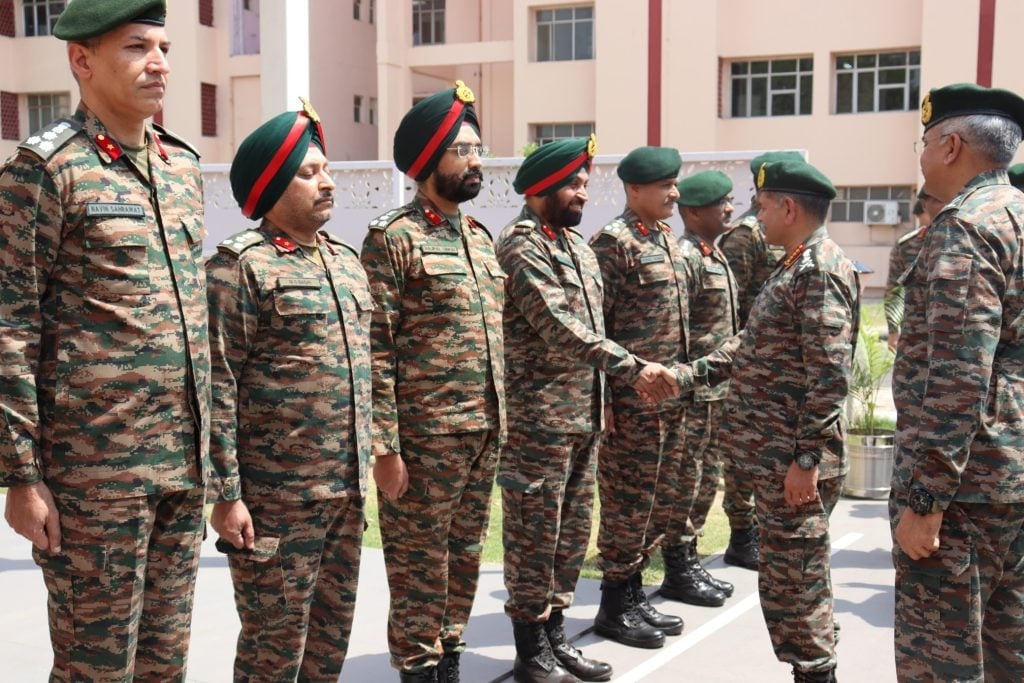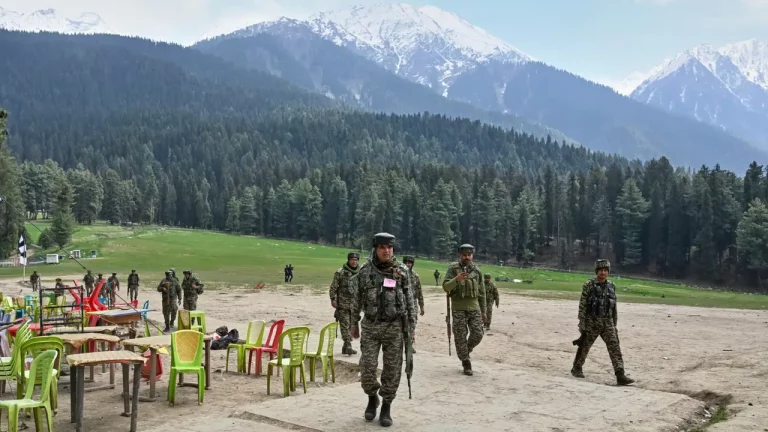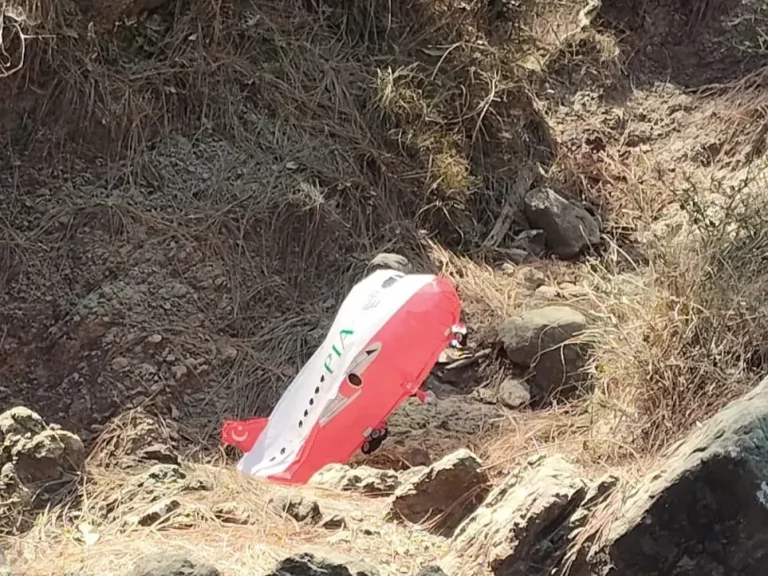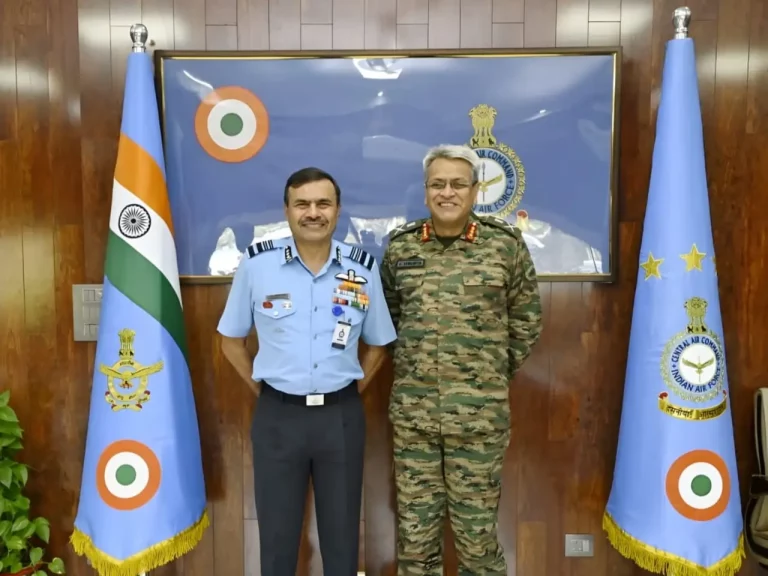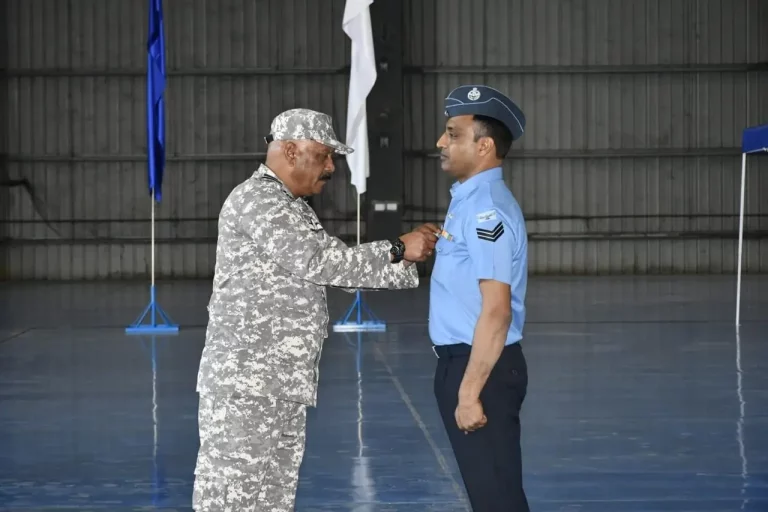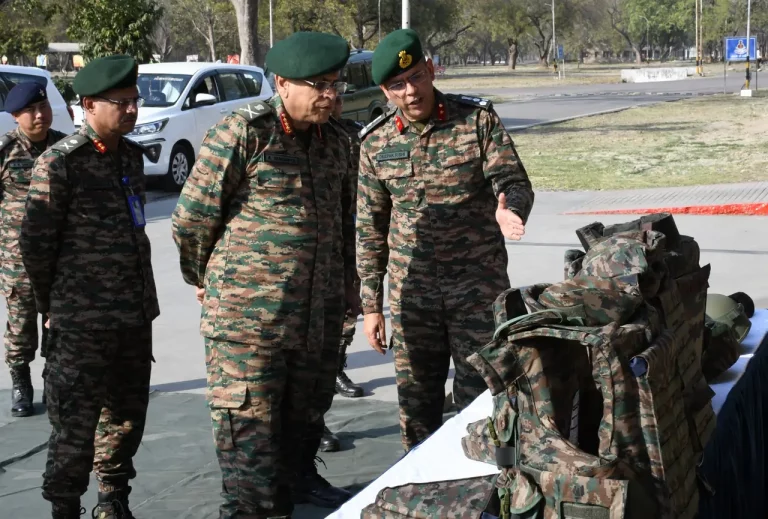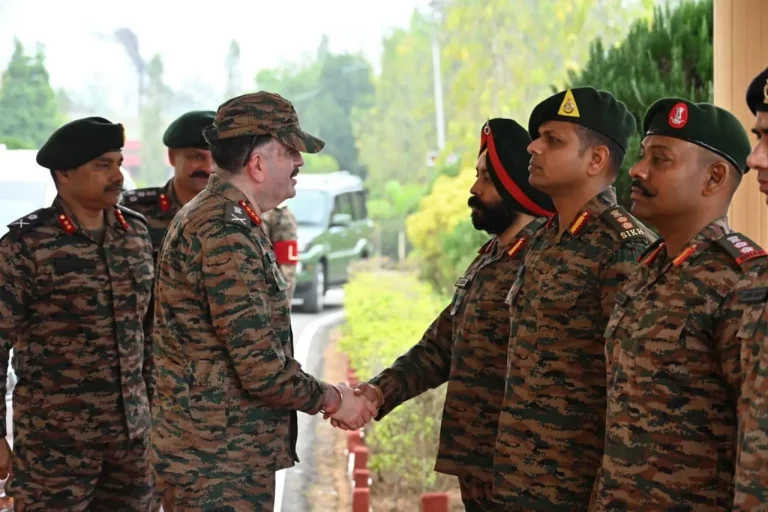General Upendra Dwivedi, the Chief of the Army Staff (COAS), made a significant visit to the Indian Army’s Vajra Corps headquarters as part of his ongoing tour of the Western Command. This visit aimed to evaluate the operational preparedness of the formation situated along the strategically critical Western Front, which borders Pakistan. General Dwivedi, who took on the role of the 30th COAS in June 2024, was accompanied by the General Officer Commanding-in-Chief of Western Command during this assessment.
The day commenced with a detailed briefing from the General Officer Commanding of Vajra Corps, who provided insights into the current security landscape and operational dynamics along the Western borders. The COAS received a comprehensive update on the Corps’ readiness posture, which is deemed essential due to the geopolitical sensitivity of the area. The Vajra Corps has been a cornerstone of India’s defense setup since its establishment in 1950, designed specifically to counter potential threats from Pakistan. It is instrumental within India’s broader military strategy, particularly in the states of Punjab, Haryana, and parts of Jammu, which fall under the jurisdiction of the Western Command.
General Dwivedi took the opportunity to commend the personnel of the Vajra Corps for their steadfast commitment, operational readiness, and professionalism in the line of duty. He stressed the necessity for the troops to adapt to changing security dynamics along the Western Front, emphasizing the importance of vigilance and preparedness in face of emerging challenges. This visit serves to reinforce the Indian Army’s dedication to maintaining a robust defense posture in this highly sensitive region.
Furthermore, this on-the-ground review aligns with the Indian Army’s larger vision encapsulated in the “Decade of Transformation” initiative running from 2023 to 2032. Notably, 2025 has been designated as the “Year of Reforms” by the Ministry of Defence, a commitment focused on technological absorption and fostering self-reliance within the military forces. By 2025, the Army aims to integrate 37 innovations into its operations and has successfully secured intellectual property rights for 25 of these advancements. This push towards indigenization is indicative of India’s resolve to establish a future-ready force capable of navigating diverse threats in an increasingly dynamic geopolitical landscape.
Additionally, Sunita Dwivedi, the President of the Army Women Welfare Association (AWWA), accompanied the COAS and took the opportunity to review various welfare initiatives implemented by the Vajra Corps. Her engagement underscored the army’s comprehensive approach to ensuring the well-being of military families and ex-servicemen, highlighting the importance of holistic care and community support within the armed forces.
